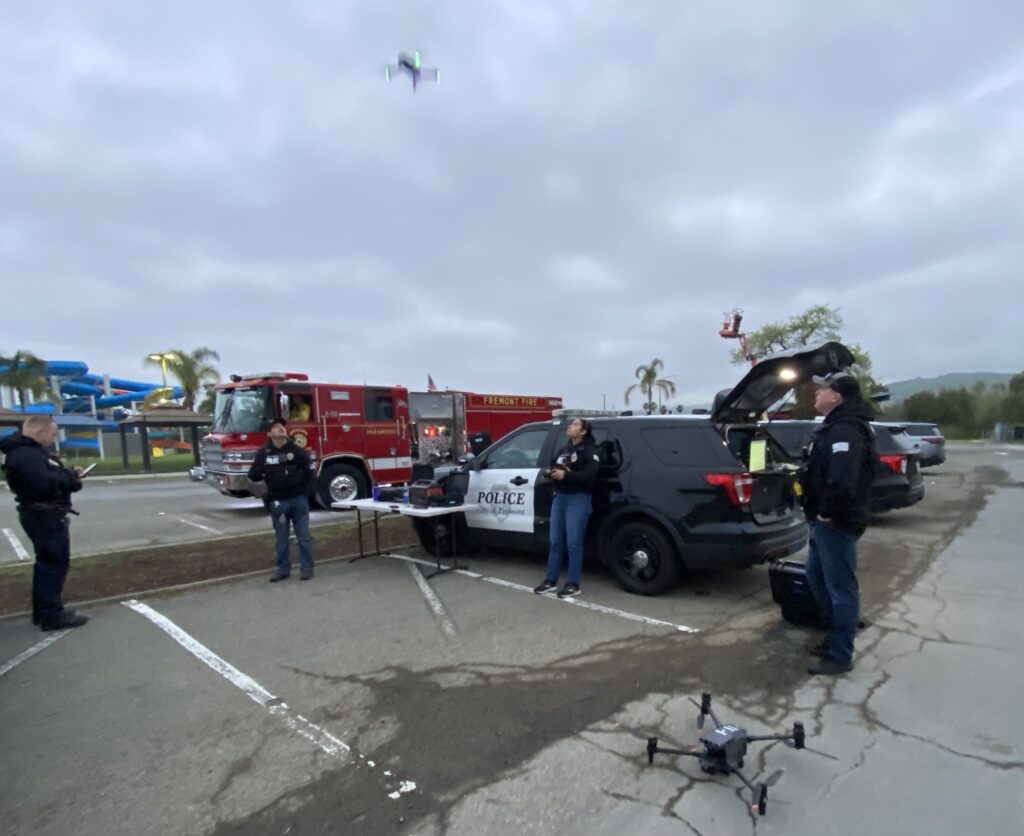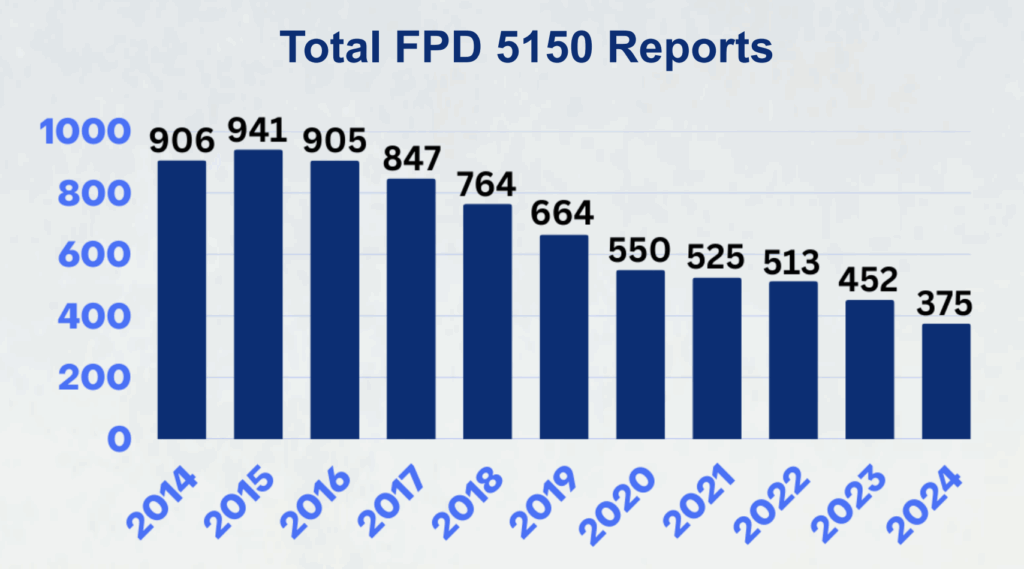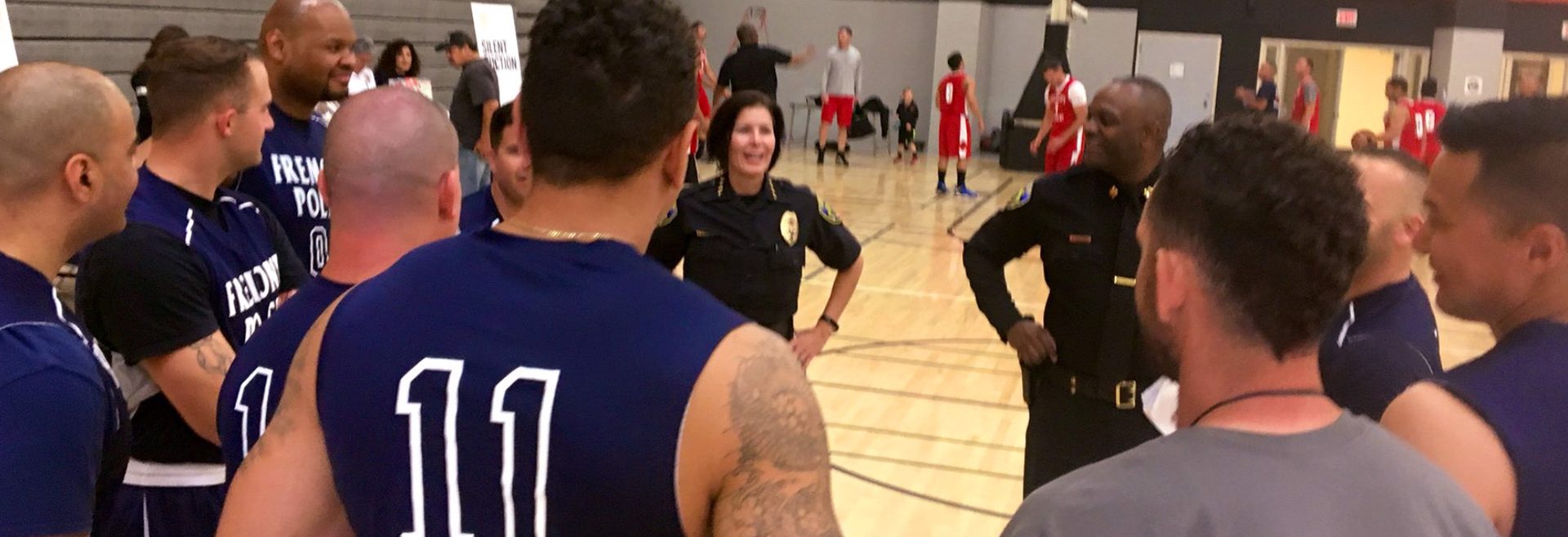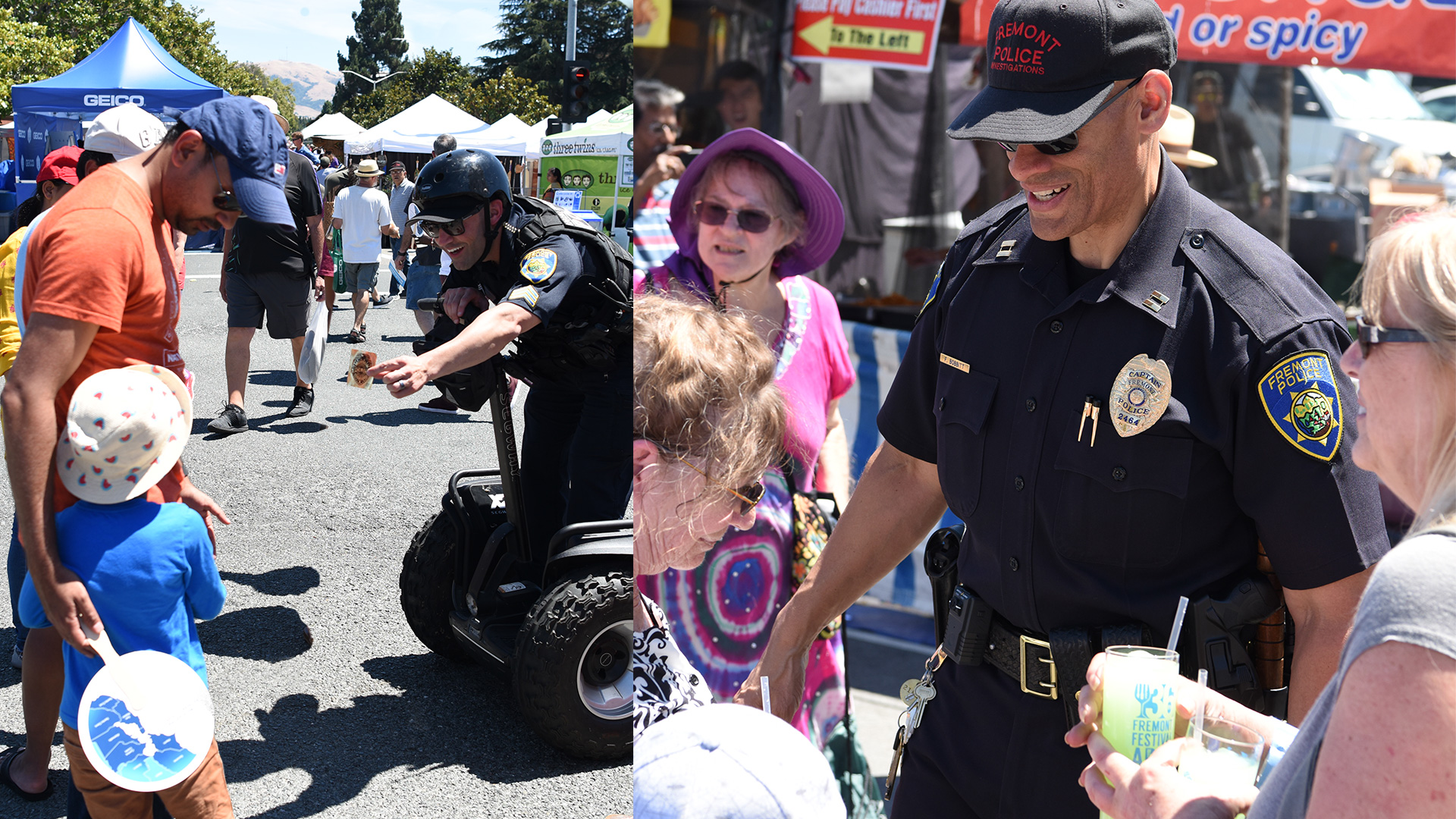What is Fremont PD’s culture?
Describing the culture of any workplace is challenging.
Merriam-Webster itself provides 12 definitions.
While there are many accounts of workplace culture floating around, everyone can agree that it plays a huge role in job performance and organizational success.
Makes sense.
If people feel supported and appreciated, it stands to reason that they’ll go that extra mile (or two).
Here’s a behind-the-curtain look at our culture.
High Standards
While many intangibles plug into the culture equation, it starts with the people.
We hire people who care about the community and gain satisfaction from helping others. No amount of training can teach this.
We also expect recruits to hold themselves to a high level of integrity. Some candidates don’t pass the hiring process. Honesty upfront is a non-negotiable for FPD.
It’s not a coincidence that many of our Officers played sports in high school and college. A similar type of teamwork and striving for something bigger than any one individual frames our culture. Moreover, we are an educated bunch, with the vast majority of our Police Officers and Command Staff obtaining college experience, including associate, bachelor’s, master’s, and even law degrees!
We’ve Got Your Back
Fremont Police treats Officers with respect from Day 1.
We want you to succeed and provide support throughout the entire recruitment process and beyond, from the Oral Board Interview to the 6-month Police Academy. Sometimes, it’s the simple actions that make a difference like a Lieutenant calling recruits to ask how they’re doing.
Instead of treating the Physical Agility Test as a military-style yelling match like many big city departments, Fremont PD believes in a motivating environment where recruits cheer for each other to meet the physical benchmarks required in this industry.
Outside of physical fitness, FPD recognizes the importance of every staff member’s mental and emotional well-being. In this line of work, we understand that our Officers deal with a lot. From a mentorship program, peer support system, professional counseling, and more, we’ve got your holistic wellness in mind.
Last, there’s a personal connection in our environment. Our Department is large enough for sophisticated law enforcement and career opportunities that rival any large metropolis. Yet, we’re small enough that we know each other’s names.
Rewarding Hard Work
We encourage Officers to better themselves and our community.
If you are interested in specialized areas of law enforcement, you can start applying for those positions right after the probation period ends.
Take Officer Veronica Castro for example. She had never flown a drone before, but the Drone as a First Responder Program caught her eye when she joined FPD. During one of her first patrol calls responding to a residential burglary, an FPD drone was deployed and gave Officer Castro real-time information about when the suspect left the house, his weapon (a gun), and his exact location to improve everyone’s safety. In the end, the bad guy was caught with no one hurt due to this extra intel.
Whether you have your sights set on the Drone Unit or another specialized area, there’s always an opportunity to make your own career goals take flight at FPD.

Prioritizing Diversity and Inclusivity
Fremont benefits from being one of the most diverse cities in the country. We are steadily working toward an agency that mirrors our community demographics. In 2024, 39.5% of sworn staff at FPD identified as BIPOC or other.
Fremont Population Race and Ethnicity Breakdown
Source: United States Census Bureau, July 2024
At last count, the community spoke 127 dialects.
Our culture reflects the goodness that comes from building a workforce that reflects our community’s diversity. We still have a ways to go toward making our department look more like the City we protect, but we are ready to do the work.
Chief Washington and his Command Staff set the tone — one that welcomes everyone.
But that’s not all – Fremont was recently named the second-best city in the U.S. for women, in the same month that Chief Washington reaffirmed Fremont PD’s commitment to the 30×30 pledge, our department’s goal to reach 30% female officers by 2030.
It’s our priority to create a safe and welcoming work environment that supports gender inclusivity.
And if you happen to speak Pashto, that would be a bonus.
Halo Effect from Our Community
Take a ride with any of our Officers while on patrol and you’ll notice something different — our residents want to interact with us.
Whether it’s a simple wave from across the street, a handshake, or a thank you after responding to a call, we know that upholding a good relationship with Fremont residents allows us to do our job more effectively.
Toward this end, we’ve established a number of community touchpoints.
For example, our Volunteers in Police Services (V.I.P.S.) are quite literally the VIPs of FPD community outreach efforts. They greatly expand our reach by assisting with the Neighborhood Crime Watch Program, providing resources and safety information to the community, responding to resident requests, and reporting suspicious activities.
Additionally, our Community Police Academy offers a hands-on educational experience for community members to learn about what we do. Through lectures and role-playing exercises, participants can learn about the key aspects of law enforcement, such as crime prevention, patrol operations, and critical incidents.
We also recently joined the Trust Building Campaign led by the International Association of Chiefs of Police (IACP). Positive, safe, and effective community interactions start with trust in law enforcement and in turn reduce crime and improve quality of life for all.
A Healthy Culture Doesn’t Accept the Status Quo
We’re not perfect.
Our culture encourages our Officers to speak up when they see ways to improve the Department.
Consider how our Mobile Evaluation Team was created in 2017. FPD knew we had to do something different when data came out that Alameda County had one of the highest numbers of 5150 psychiatric holds in California. That’s when then Captain Kim Petersen approached then Sergeant Paul McCormick who had experience managing the hostage negotiation team to create FPD’s MET Team.
This unique program pairs specially trained officers who have been to Crisis Intervention Training (C.I.T.) with one clinician to provide enhanced services to those experiencing mental health crises and/or homelessness.
“Working on the MET Team offers officers the opportunity to develop skills that they may not necessarily develop in traditional police work,” Lieutenant McCormick said. “It’s vital that we develop long-term relationships with clients and family members to gain their trust and connect them to further services. At the end of the day, we’re bringing value and benefit to that individual and the broader community.”
Today, the program has grown to one police sergeant, two police officers, one community service officer, and one licensed mental health professional from Fremont’s Human Services Department. In the years since its inception, there’s been a steady decrease in 5150s. In fact, total numbers have been nearly cut in half due to the advanced training FPD officers receive and the follow-up mental health and housing services that the MET team connects those who need additional assistance with.

And that’s just one of the programs that FPD has organized to help serve all members of our community with diverse needs. FPD was also one of the first Bay Area Police Departments to commit to Code Joshua, a new needs registry created by Fremont residents Mizpah Brown-Rich and Kerry Rich who have an autistic son.
This voluntary registry allows families of those with autism to provide details about how to best communicate with the autistic individual, a current photo, limitations they might have such as being non-verbal, and more. This information becomes vital in a missing persons case that involves an autistic individual, a “Code Joshua,” to provide the fastest and best possible resolution.
Ultimately, FPD values moving beyond the status quo and providing top-notch, innovative services to our residents. We want to hear your viewpoints on how we can make FPD better, even from Officers who are just embarking on their careers.
That’s one of the ways we keep evolving as an organization.



